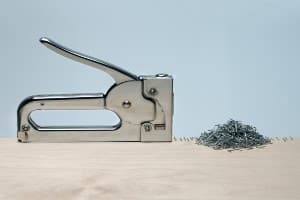
Can the retailer be held liable for selling a defective product?
The simplest answer is “It depends.”
Can You Hold a Retailer Liable?
In many cases, retailers can be held liable for selling defective products. However, the extent of their liability may vary depending on several factors. For example:
Duty to Sell Safe Products
Retailers have a legal obligation to sell products that are safe for their intended use. This duty extends to ensuring that the products they sell meet safety standards and do not pose unreasonable risks to consumers when used as intended.
Product Liability Laws
Product liability laws hold manufacturers, distributors, and retailers accountable for injuries or damages caused by defective products. While manufacturers are typically the primary defendants in product liability cases, retailers can also be named as defendants if they play a role in distributing or selling the defective product.
Types of Retailer Liability
Retailers can be held liable for defective products under various legal theories, including negligence, strict liability, and breach of warranty.
Negligence may occur if the retailer knew or should have known about the product’s defect but failed to take appropriate action.
Strict liability holds retailers accountable for selling defective products regardless of fault. Breach of warranty claims, on the other hand, arise when a product fails to meet the terms of an express or implied warranty.
Foreseeability and Control
Courts consider factors such as the foreseeability of harm and the retailer’s level of control over the product in determining liability. If the retailer had knowledge of the defect they may be held liable for any resulting injuries or damages. The same is true if they could inspect or test the product but failed to do so.
Defenses Available to Retailers
Retailers may assert certain defenses to limit or avoid liability for defective products, such as lack of knowledge of the defect, compliance with industry standards, or the presence of warning labels or instructions. However, the effectiveness of these defenses will depend on the specific circumstances of each case.
How Can a Lawyer Help You If You’re Injured by a Defective Product?
If you have been injured or suffered damages due to a defective product purchased from a retailer, it’s crucial to seek legal advice from an experienced product liability attorney. Here’s why:
- Legal Expertise: Product liability cases can be complex, involving intricate legal principles and evidence gathering. An attorney with expertise in product liability law can assess the details of your case. They’ll explain your rights and advise you on the best course of action.
- Investigation and Evidence: Building a strong case for product liability often requires thorough investigation and gathering of evidence. The process might include product testing, expert analysis, and documentation of the defect and resulting injuries. An attorney can handle these tasks on your behalf to strengthen your claim.
- Negotiation and Litigation: An attorney will advocate for your rights and pursue compensation for your injuries, medical expenses, lost wages, and pain and suffering.
Also keep in mind, even if a retailer is not liable for your injuries, the manufacturer of the product might be. A lawyer can help you determine who is at fault. For more information or to schedule a consultation, contact the Geller Injury Law Firm at (813) 337-7798.



